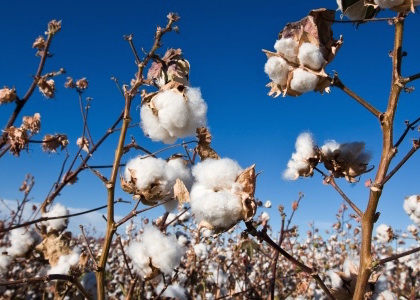
Genetically Modified Foods – part 2; Australian Update
By Claire Georgiou, Reboot Naturopath, B.HSc ND
Genetically modified (GM) foods have always been a subject of controversy, and there is confusion about whether we are already eating them in Australia. Currently in Australia there are 3 types of GM crops that have been approved by the Gene Technology Regulator to be grown commercially in Australia. GM cotton has been grown commercially in Australia since 1996 and by 2007 made up 90% of the total cotton crop. Monsanto’s roundup ready GM canola was commercially released in Australia for the first time in 2008 in NSW and VIC. Bans in South Australia and Tasmania still prevent GM canola from being grown there. The third GM crop is GM blue carnations insect and herbicide resistant.
Over 800 trials of GM crops have been conducted in Australia, including GM wheat, sugar cane, grapes, pineapples, papaya, and bananas. While these are experimental trials, the crops are grown on farmland in the open air, posing contamination risks to both the environment and non-GM farmland.
Some of the arguments in favour for GM foods are they require less pesticides, they can be engineered for faster growth, resistant to pathogens, production of extra nutrients, they have an increased yield therefore producing more crop with less resources, and provide ways to grow crops on land that would otherwise not support farming such as the dry drought stricken areas in Australia.
The argument against GM crops are the lack of long term human studies to determine their health risks and safety, and the negative environmental effects which are truly unknown. Some of the negative consequences of GM crops are a rapid emergence of super-weeds, resistant to glyphosate in Roundup Ready crops, and now there is an emergence of Corn Bt-resistant insects, a biotech corn that is losing its resistance to plant-damaging pests.
There are no Australian studies on the long-term effects of GM food consumption in animals or humans although there are a number of animal studies that have been conducted in Europe and America, some experts have suggested that there is sufficient evidence from animal studies to call for further research to be conducted.
• In 2011, doctors at Sherbrooke University Hospital in Quebec found Bt-toxin in the blood of 93% of pregnant women, 80% of umbilical blood in their babies, and 67% of non-pregnant women. This Bt-toxin is consumed in the normal processed diet, as genetically engineered corn is present in the vast majority of all processed foods and drinks in the form of high fructose corn syrup. The toxin also may have come from eating meat from animals fed on Bt corn as most livestock raised in factory farms, are fed on Bt corn. In government-sponsored research in Italy, mice were fed Monsanto’s Bt corn and they showed a wide range of immune system disorders.
• Dr. Don Huber, an agricultural scientist and expert in microbial ecology, has issued warnings about the effects of genetically engineered food crops after discovering a brand new organism in GE animal feed—an organism that has since been clearly linked to infertility and miscarriage.
• GM soya linked to health damage in pigs – one Danish pig farmer has been able to raise healthier animals since stopping GM soya feed
We currently eat small amounts of GM in Australia. While only 3 GM crops are approved for growing in Australia there are other GM food products that have been imported from overseas and approved for consumption in Australia such as GM soybean, corn and potato. These GM foods are typically only found in processed foods and cannot be purchased as fresh food. Imported GM foods are found in small quantities in starches, such as breakfast cereals, breads, biscuits, additives and oils, and both GM canola and GM cotton seed are grown in Australia and eaten as oil.
Australia may become one of the first countries in the world to grow and eat genetically modified wheat. GM wheat will be available by 2015 in Australia and we will have GM bread, pasta, biscuits, breakfast cereals and other GM wheat flour based products. This is of course very controversial on why we would start growing GM Wheat in Australia.
While the Australian law requires labelling of foods containing over 1 percent (per ingredient) of a GM food, there are a few loopholes and processed foods like canola oil, for example, aren’t labelled. Milk, meat and eggs that come from animals fed on GM crops aren’t labelled. Even restaurants and bakeries can use GM ingredients without giving us the right to know.
Another area of concern is the mounting evidence showing that coexistence between GM and non-GM is appearing to be impossible. Genetically modified organisms have the ability to breed, and it cannot be controlled once released into the environment. Australia’s First Legal Attack on Monsanto for GM Contamination of Organically Certified Crops has occurred in Western Australia.
How to avoid genetically modified foods in Australia:
• Here is a guide to assist you when purchasing products that may contain GM ingredients in Australia Truefood Guide rating Australian companies on whether or not they use GM ingredients.
• All fresh food is GM Free currently in Australia (avoiding processed foods decreases your likelihood of consuming GM foods)
• Buy products that indicated that they are totally GM FREE
• Buy Organic, especially Local